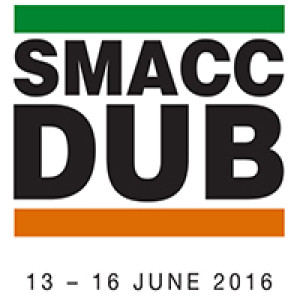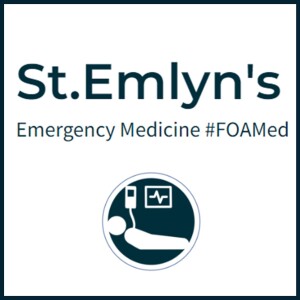
- Podcast Features
-
Monetization
-
Ads Marketplace
Join Ads Marketplace to earn through podcast sponsorships.
-
PodAds
Manage your ads with dynamic ad insertion capability.
-
Apple Podcasts Subscriptions Integration
Monetize with Apple Podcasts Subscriptions via Podbean.
-
Live Streaming
Earn rewards and recurring income from Fan Club membership.
-
Ads Marketplace
- Podbean App
-
Help and Support
-
Help Center
Get the answers and support you need.
-
Podbean Academy
Resources and guides to launch, grow, and monetize podcast.
-
Podbean Blog
Stay updated with the latest podcasting tips and trends.
-
What’s New
Check out our newest and recently released features!
-
Podcasting Smarter
Podcast interviews, best practices, and helpful tips.
-
Help Center
-
Popular Topics
-
How to Start a Podcast
The step-by-step guide to start your own podcast.
-
How to Start a Live Podcast
Create the best live podcast and engage your audience.
-
How to Monetize a Podcast
Tips on making the decision to monetize your podcast.
-
How to Promote Your Podcast
The best ways to get more eyes and ears on your podcast.
-
Podcast Advertising 101
Everything you need to know about podcast advertising.
-
Mobile Podcast Recording Guide
The ultimate guide to recording a podcast on your phone.
-
How to Use Group Recording
Steps to set up and use group recording in the Podbean app.
-
How to Start a Podcast
-
Podcasting
- Podcast Features
-
Monetization
-
Ads Marketplace
Join Ads Marketplace to earn through podcast sponsorships.
-
PodAds
Manage your ads with dynamic ad insertion capability.
-
Apple Podcasts Subscriptions Integration
Monetize with Apple Podcasts Subscriptions via Podbean.
-
Live Streaming
Earn rewards and recurring income from Fan Club membership.
-
Ads Marketplace
- Podbean App
- Advertisers
- Enterprise
- Pricing
-
Resources
-
Help and Support
-
Help Center
Get the answers and support you need.
-
Podbean Academy
Resources and guides to launch, grow, and monetize podcast.
-
Podbean Blog
Stay updated with the latest podcasting tips and trends.
-
What’s New
Check out our newest and recently released features!
-
Podcasting Smarter
Podcast interviews, best practices, and helpful tips.
-
Help Center
-
Popular Topics
-
How to Start a Podcast
The step-by-step guide to start your own podcast.
-
How to Start a Live Podcast
Create the best live podcast and engage your audience.
-
How to Monetize a Podcast
Tips on making the decision to monetize your podcast.
-
How to Promote Your Podcast
The best ways to get more eyes and ears on your podcast.
-
Podcast Advertising 101
Everything you need to know about podcast advertising.
-
Mobile Podcast Recording Guide
The ultimate guide to recording a podcast on your phone.
-
How to Use Group Recording
Steps to set up and use group recording in the Podbean app.
-
How to Start a Podcast
-
Help and Support
- Discover

Welcome to the St Emlyns blog! We, Iain Beardsell and Simon Carley, are thrilled to report from the first day of the Smack Dub Conference in Dublin. It's been a while since our last update, and we're eager to share the day's experiences, which were filled with emotional moments, innovative presentations, and deep discussions. Here's a summary of the key events and takeaways.
Opening with a Tribute to John HindsThe conference started early at 8 AM, with the opening session dedicated to the memory of John Hinds, a beloved figure in the Smack community who tragically passed away last year. Known for his engaging presentations and contributions to motorcycle medicine, John was greatly missed. The session began with Vic Brasel discussing the importance of feedback in medical education, setting the tone for a reflective and insightful day.
Meditation and Mindfulness in MedicineScott Weingart surprised the audience with a live podcast recording on meditation, an unusual topic for a resuscitation-focused conference. He emphasized the importance of mental exercise alongside physical health, advocating for practices like mindfulness to enhance well-being. Scott's discussion on Stoic philosophy and mental resilience resonated with many attendees, encouraging a broader perspective on personal and professional health.
Advances in Helicopter Emergency Medical ServicesGareth Davies from London Hems delivered a compelling talk on the evolution and future of helicopter emergency medical services (HEMS). He highlighted the ongoing campaign for an air ambulance in Northern Ireland, a cause John Hinds passionately supported. Gareth's discussion emphasized the need for moral authority to drive forward innovative healthcare solutions, especially in areas where traditional evidence can be challenging to gather.
Special Session: Remembering John HindsA particularly poignant session featured Janet, John's partner, who shared touching personal stories about John's life and work. Fred McSorley added humor with anecdotes from their time together in motorcycle medicine. This session provided a heartfelt tribute, capturing the essence of John's character and contributions. It concluded with a musical tribute, leaving many in the audience moved and inspired.
Diving Into the Main ConferenceThe day's formal sessions covered a range of topics, beginning with my talk on the future of emergency medicine. I discussed key factors such as political, demographic, and technological changes shaping the field. Demonstrating new technologies, we explored how these advancements could transform emergency medical practices.
Michelle Johnson's Vision of a Dystopian Medical FutureMichelle Johnson captivated the audience with her presentation on the dystopian future of emergency medicine. Drawing from literature, she explored potential ethical and societal implications of technological advancements in healthcare. Her talk challenged attendees to think critically about the future, offering a blend of caution and inspiration.
Addressing the Challenges of an Aging PopulationSuzanne Mason focused on the increasing importance of geriatric care in emergency medicine. She discussed strategies for better managing the healthcare needs of an aging population, emphasizing comprehensive assessments and tailored interventions. Suzanne's talk highlighted the need for improved care models to address this growing demographic's unique challenges.
Diagnostic Processes: The Art of Thin SlicingSwami's session on thin slicing in diagnosis delved into the cognitive processes behind decision-making in emergency situations. He explored how clinicians can refine their intuition and pattern recognition to improve diagnostic accuracy. This presentation underscored the importance of cognitive skills in high-pressure medical environments.
Afternoon Sessions: A Range of Engaging TopicsThe afternoon featured a variety of sessions, with topics ranging from ECMO and Perimortem C-sections to discussions on the future of medical journals. One notable debate featured Jeff Drazen and Richard Smith discussing the evolving role of journals in the digital age. Richard Smith argued for a shift away from traditional publishing, advocating for more open-access models to democratize knowledge.
Live Demonstrations and Innovative Presentation StylesThe "Kickstart the Heart" session showcased a live demonstration of ECMO CPR, highlighting the innovative presentation styles encouraged at Smack. The diversity of approaches, from traditional lectures to interactive demonstrations, provided a rich learning experience.
Sarah Gray's talk on Perimortem C-sections emphasized the importance of preparedness for rare but critical interventions. The session highlighted the necessity of regular practice to ensure readiness in life-threatening situations.
Diverse Presentation ApproachesJohn Carlisle's creative presentation on detecting fraud in clinical trials used the perspective of his six-year-old daughter, making complex topics accessible and engaging. Meanwhile, Richard Smith's slide-free talk demonstrated the power of effective storytelling in conveying complex ideas, particularly his radical views on the future of medical journals.
Wrapping Up and Looking AheadThe final session, which Simon participated in, focused on the future of knowledge dissemination. The discussion explored potential post-paper publication models and the increasing role of digital and social media in spreading medical knowledge. The panel highlighted the need for adaptability in a rapidly changing information landscape, with Richard Smith advocating for closing traditional journals in favor of open-access platforms.
As the day concluded, attendees reflected on the depth and breadth of content covered. While some enjoyed Dublin's nightlife, Simon and I prepared for our talks the following day, opting for a quiet evening.
ConclusionDay one of the Smack Dub Conference was a remarkable success, filled with memorable tributes, innovative presentations, and deep discussions. The event challenged us to think critically about the future of emergency medicine and the role of various communication styles in medical education. We look forward to the rest of the conference and sharing more insights and experiences. Stay tuned to the St Emlyns blog for further updates and detailed session reviews. See you tomorrow!
More Episodes
 2019-02-23
2019-02-23
 4.3k
4.3k
 2019-02-17
2019-02-17
 3.1k
3.1k
 2018-12-31
2018-12-31
 3.5k
3.5k
 2018-12-23
2018-12-23
 3.4k
3.4k
 2018-11-28
2018-11-28
 3.8k
3.8k
 2018-11-13
2018-11-13
 3.6k
3.6k
 2018-10-28
2018-10-28
 3.1k
3.1k
 2018-10-22
2018-10-22
 3.5k
3.5k
 2018-10-16
2018-10-16
 3.4k
3.4k
 2018-09-28
2018-09-28
 3.7k
3.7k
 2018-08-17
2018-08-17
 3.5k
3.5k
 2018-06-15
2018-06-15
 3.8k
3.8k
 2018-05-31
2018-05-31
 5.0k
5.0k
Create your
podcast in
minutes
- Full-featured podcast site
- Unlimited storage and bandwidth
- Comprehensive podcast stats
- Distribute to Apple Podcasts, Spotify, and more
- Make money with your podcast
It is Free
- Privacy Policy
- Cookie Policy
- Terms of Use
- Consent Preferences
- Copyright © 2015-2025 Podbean.com


